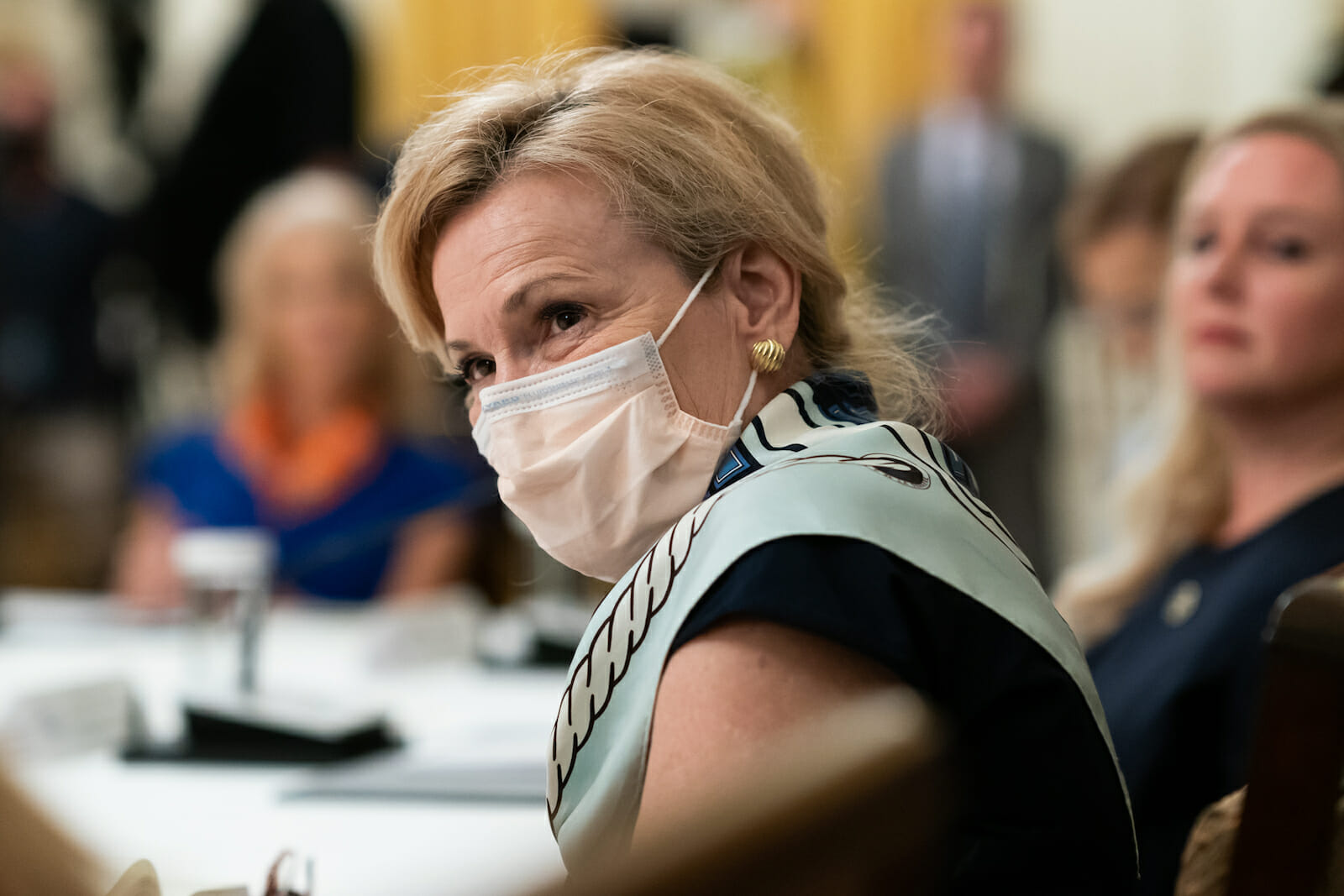
Health
Not Knowing What You Stand For: Deborah Birx and Public Health
Pity the public health official tasked with convincing those beyond convincing that a pandemic crisis is worthy of serious consideration. This is further complicated in instances where such officials feel the need to play court jester, appeaser, or silent sufferer.
When she was made coordinator of the White House Coronavirus Task Force, Deborah Birx was taking the position with a hefty resume, heavily credentialed by such achievements as being the US global AIDS coordinator during the Obama administration. Former US Secretary of State John Kerry had said of her in 2014 that she “embodies the best of what it means to be a pioneer, to be a practitioner, and a public servant all rolled into one.”
With such bountiful praise, the risk of disembodiment and unraveling is never far. Birx began to get increasingly undone as the pandemic started to gallop through the United States. President Donald Trump, true to his singular method of managing staff, came up with what can only be described as an alternative universe of suggestion and data. Filled with mishaps, keen misreading, and a certain astrological quality, the views conveyed to Trump on how best to cope with COVID-19 were not so much quashed by Birx as gently fielded.
To the suggestion that disinfectants or a “very powerful light” might be used to treat and eradicate COVID-19, a visibly discomforted Birx took to the Fox News field to muddy the boots and defend the commander-in-chief and his distinct way of consuming information. “When he gets new information, he likes to talk that through out loud and really have that dialogue — and so that’s what dialogue he was having.” According to Birx, “I think he just saw the information at the time immediately before the press conference and he was still digesting that information.”
Such behaviour prompted members of the Biden transition team to look at her warily. Were her services to be retained in some capacity, the new administration might be inheriting an unnecessary handicap. “Publicly,” came the unflattering assessment of public health academic Gregg Gonsalves at Yale, “she too often looked like an apologist.” It did not “bode well for confidence as a public leader when nobody knows what you stand for.”
Birx now has a different song sheet. This has entailed dumping, quite heavily, on her former employer for mishandling the pandemic. In doing so, she is hoping to iron any creases that have found their way into her image while highlighting the depravity of the administration she worked for.
On the CBS program “Face the Nation,” Birx took solid aim at the Trump White House, claiming “there were people who definitely believed this was a hoax.” This was not aided by incomplete, even chaotic messaging. “Every time a statement was made by a political leader that wasn’t consistent with public health needs, that derailed our response.” Birx was not shy in promoting her white knight credentials. “It is also why I went out on the road, because I wasn’t censored on the road.”
Her recommendations on limiting the number of people at gatherings – for instance, dining – were ignored as a matter of course. This necessitated various measures of mitigation including direct communications with state governors and local officials. Her advice on the wearing of masks was also rebuked, with preference given to regular testing over protective facewear.
Birx does little to accept complicity in the Trump misinformation show, despite doing little, publicly, to rebuke the evolving narrative. She exudes shock and incredulity, wondering where certain sources of data on infections were being generated. “I saw the president presenting graphs that I never made.” There were those “creating a parallel set of data and graphics that were shown to the president.”
She draws on that most discredited of justifications, the I-followed-orders defence, and the claim that she “was not able to do national press.” It was essential that she not “go outside the chain of command.” Hardly words to inspire, coming from a prominent public health official.
While Birx was holding forth with her apologetics at CBS, the country’s top infectious disease expert Anthony Fauci was also doing his bit to single out the peculiarities of the Trump administration in the New York Times. This was the belated season for public health officials to return the serve. The president, recalled Fauci, attempted “to coax you and minimise” the coronavirus crisis. “It was clear that he was getting input from people who were calling him up, I don’t know who, people he knew from business, saying, ‘Hey, I heard about this drug, isn’t it great?’ or, ‘Boy, this convalescent plasma is really phenomenal.’”
While Fauci cautioned against embracing such suggestions in the absence of clinical trials and peer-reviewed findings, Trump was stubborn. “He would take just as seriously their opinion – based on no data, just anecdote – that something might really be important.”
Such revelations after the fact present troubling dilemmas. Admirable as it is for public servants to remain loyal to their briefs and employers, self-censoring and a refusal to demonstrate an ethical backbone for the public is deeply troubling. AIDS Healthcare Foundation President Michael Weinstein offers a bleak suggestion. “History will have to judge whether they enabled the president by giving him credibility based on their expertise or whether [Birx] and the others did more in helping prevent more people from being hurt by [Trump’s] craziness.”
In trying to keep a lid on disagreements within the Trump administration on how best to cope with COVID-19, we are left with the impression that expertise, for such individuals as Birx, is a consideration subordinate to political direction. If her services were to be retained by the new administration, in whatever form, officials can be assured that dissent will be severely diluted, assisted by the chain of command.

